Discover The Cerebral Faith Podcast
The Cerebral Faith Podcast

The Cerebral Faith Podcast
Author: Evan Minton
Subscribed: 47Played: 2,385Subscribe
Share
© Evan Minton
Description
This podcast talks about the arguments for God's existence, the historical evidence for Jesus' resurrection, the toughest objections skeptics pose against the Christian faith, theological issues like soteriology and eschatology (i.e the doctrine of the last days), and so much more. Listen to this podcast (hosted by apologist Evan Minton) whether you are already a Christian, a hardcore skeptic, or a spiritual seeker, and you will discover that you can be a Christian BECAUSE of using your brain rather than in spite of using it.
170 Episodes
Reverse
This is the final episode of The Cerebral Faith Podcast. Mr. Minton explains his reasons for ending the podcast, as well as listing 30 episodes of the podcast that he recommends newcomers listen to the most. He then gives a few testimonials. He ends with a heartfelt thank you to all those who tuned in over the years as well as the guests who came on to converse on a variety of different topics.
In this episode, Evan Minton will go on to talk about his view on inerrancy and how that relates to the theory of divine accommodation which encompasses such topics as Ancient Near Eastern Cosmology, the head covering issue of 1 Corinthians 11, God's Gender, and Jesus' Sonship. He will also talk about the differences between Bible reading and Bible Study, as well as resources he recommends for digging deeper into one's Bible study.
To see The Chicago Statement on Biblical Inerrancy mentioned in this episode, click here --> https://www.etsjets.org/files/documents/Chicago_Statement.pdf
To see The Bellingham Statement on Inerrancy mentioned in this episode, click here --> https://drmsh.com/another-proposed-bellingham-statement/
This is a 2 part episode in Evan Minton thinks about The Bible. In this part, Evan Minton talks about biblical inspiration and what it means to say that The Bible is divinely inspired, as well as theories of divine inspiration (I.e how God and man worked together to bring about The Bible). He goes on to talk about different reasons to believe that The Bible is, in fact, from God.
In todays episode, Evan Minton talks about the case for the historical reliability of the book of Acts with Christian Apologist and YouTuber Erik Manning. Who wrote the book of Acts? When was Acts written? What extra biblical writings and archeological evidence can verify what Acts says? Are there any clues within the book of Acts itself that suggest that the author knew what he was talking about? All of these questions and more are addressed in this episode.
For more content from Erik Manning, check out his YouTube channel; Testify - https://www.youtube.com/@TestifyApologetics
In this episode, Mr. Minton has Dr. Kirk MacGregor on the podcast to talk about a view known as Open Theism, and what the biblical and philosophical issues with such a view are. Primarily they will be responding to arguments for Open Theism such as the argument that if humans have libertarian free will, God cannot foreknow our libertarianly free choices, as well as certain biblical proof texts Open Theists have marshaled in favor of their view. However, a positive case for God having foreknowledge of future contingent events is also made in this episode.
If you'd like to read more about Molinism and Open Theism from Dr. MacGregor, below are a couple of resources mentioned in the episode:
* "Calvinism and Middle Knowledge: A Conversation" -- https://www.amazon.com/Calvinism-Middle-Knowledge-John-Laing/dp/1532645732
* "Luis De Molina: The Life and Theology Of The Founder Of Middle Knowledge" -- https://www.amazon.com/Luis-Molina-Theology-Founder-Knowledge-ebook/dp/B00UF7W4AM?ref_=ast_author_dp
In this episode, it is also an episode of What Your Pastor Didn’t Tell You in which Zach Miller had Evan Minton on as a guest. Miller and Minton respond to David Tsumura’s criticism of The Functional Origins/Temple Inaguration view of Genesis 1 as defended in books such as John Walton’s “The Lost World Of Genesis One” and “Genesis 1 As Ancient Cosmology”.
If you’d like to see the video of this episode, click here —> https://www.youtube.com/watch?v=u9Twp-gXDmY&t=3s
Click here to visit Zach Miller’s channel. —> https://www.youtube.com/@WhatYourPastorDidntTellYou
Back in 2022, Evan Minton was on Zach Miller's podcast "What Your Pastor Didn't Tell You". In this episode, they responded to criticisms of the interpretation of Genesis 1 defended by John Walton in books like "The Lost World Of Genesis One" and "Genesis 1 As Ancient Cosmology".
To see more of Zach Miller's podcast, visit the following URLs for the podcast in its video and audio only formats respectively.
https://www.youtube.com/@WhatYourPastorDidntTellYou
https://open.spotify.com/show/2YZOl3T8gyCYZiNqYuwZOy
Many people wonder about what's going to happen to them after they die. The Bible teaches that Christians will go to a place God has prepared for us called Heaven, whereas those who don't believe in Jesus go to a place called Hell. Yet as many tough questions as the latter place generates, there are also many questions about the former as well, even from people who have gone to church for years! In today's episode, Evan Minton interviews Brian Chilton, author of the book "Conversations About Heaven: Difficult Questions About Our Eternal Home". Dr. Chilton tackles questions such as "Where is Heaven?", "Does the soul survive the death of the body?", "What will the new creation be like?", and "Do animals go to Heaven?", "What about Near Death Experiences?" In the book, he discusses even more questions than what was discussed in this podcast episode.
Click here to get to the book --> https://www.amazon.com/Conversations-about-Heaven-Difficult-Questions/dp/1666762687
New Testament scholars treat John's gospel as largely a-historical when it comes to things Jesus said and did. This is even true of some evangelical scholars. For example, Craig Evans has publicly said that Jesus just sounds too different from how he talks in the synoptics, so John more or less paints an interpretive portrait of Jesus, making up things that Jesus never literally said in the narrative contexts we read about, but still vaguely captures some essence of what the historical Jesus taught. But how solid of a conclusion is this view? In this episode, Dr. Lydia McGrew offers a rebuttal.
To read more about this, check out Dr. McGrew's book "The Eye Of The Beholder: The Gospel Of John As Historical Reportage" and "Testimonies To The Truth: Why You Can Trust The Gospels". Click the links below for both books respectively.
https://www.amazon.com/Eye-Beholder-Gospel-Historical-Reportage/dp/1947929151
https://www.amazon.com/Testimonies-Truth-Why-Trust-Gospels/dp/1947929232/ref=d_m_crc_dp_lf_d_t1_sccl_2_2/135-4936731-3445617?pd_rd_w=CXY0O&content-id=amzn1.sym.5d471845-5073-424b-b27b-c0676f48a016&pf_rd_p=5d471845-5073-424b-b27b-c0676f48a016&pf_rd_r=H1XRG76F930CZD2NG53G&pd_rd_wg=r1cvP&pd_rd_r=0adbae74-ce82-45b1-97d6-930b1d216e68&pd_rd_i=1947929232&psc=1
In today's episode, Mr. Minton interviews John Wise; a philosophy professor who went from Christian to atheist to back to being a Christian again, a remarkable journey that spanned 25 years and culminated in 2019. Dr. Wise tells of his journey of faith and skepticism, and how he now views faith matters having been on both sides of "the looking glass". Dr. John Wise goes into more detail about his journey on his podcast "The Christian Atheist" which he runs alongside his wife Jenny Wise, as well as in his book "Through The Looking Glass: The Imploding Of An Atheist Professor's Worldview" which can be purchased on Amazon in paperback and Kindle.
Check out The Christian Atheist here --> https://open.spotify.com/show/4wWaVlpuRgoLOpZDtADBPD
Check out "Through The Looking Glass: The Imploding Of An Atheist Philosopher's Worldview" --> https://www.amazon.com/Through-Looking-Glass-Professors-Transcripts/dp/B0BW23B4MR/ref=tmm_pap_swatch_0?_encoding=UTF8&qid=&sr=
In today's episode, I have Nick Peters of Deeper Waters ministries on the podcast. Nick Peters is a Christian Apologist and theologian who has recently devoted his research to, believe it or not, video games! Specifically, video games and the psychology surrounding it as well as the theological aspects of it. In fact, he gave an entire talk at the Defend conference last year on this very subject. Why do people play video games? Why are so many adults interested in video games? Is there anything particularly wrong with adults playing video games? And what would happen if we took life as seriously as we took video games? These topics and more are discussed in this episode.
For more content from Nick Peters, go to www.deeperwaters.com
"Life Is A Game: What Game Design Says about the Human Condition" by Edward Castronova -- https://www.amazon.com/Life-Game-Design-about-Condition/dp/1501360612
"The Gaming Mind: A New Psychology of Video Games and the Power of Play" by Alexander Kriss PhD -- https://www.amazon.com/dp/B07WFXCTP4/ref=adbl_dp_wfv_kin
In this podcast episode, we wrap up our series on the historical case for the reliability of the gospels. I will tell the non-Christian who has been convinced by the evidence and arguments surveyed in the series what he should do next. I also have a message for non-Christians who may be resisting the evidence for non-intellectual reasons. And finally, I have a message for Christians who may want to use this material in their evangelistic encounters. The Maximal Data Approach is not the unweildy, inefficient argument that many defenders of the Minimal Facts Approach (formerly including myself) have made it out to be. In fact, when all is said and done, the Maximal Data Argument for Jesus' Resurrection might be even better. Though I still think The Minimal Facts Argument for Jesus' Resurrection is still a good argument.
To see the blog post, click here --> https://cerebralfaith.net/the-case-for-the-reliability-of-the-gospels-conclusion/
Continuing on with the audio blog series on the historical reliability of the gospels, I now turn to the issue of the historicity of Jesus' resurrection. Having previously established that the gospels are eyewitness accounts that are early (not to mention verified to be telling the truth on a variety of different occasions), we must answer the question as to why they claimed to have seen Jesus alive after His death saying and doing very specific things on a multitude of occasions. There are only three possibilities; they were either lying, mistaken, or telling the truth.
Click here to see the blog post --> https://cerebralfaith.net/the-case-for-the-reliability-of-the-gospels-part-9-the-resurrection-of-jesus/
Continuing on with The Gospel Reliability Audio-Blog series, I examine the case against miracles. Are miracles really impossible? Or if they're possible, can they never be evidentially established? This is what the 18th century Scottish philosopher David Hume argued. In this episode of The Cerebral Faith Podcast, I will be giving my refutations of Hume, showing that miracles are both possible and are capable of being established as long as the evidence is good enough. While miracles have a somewhat low antecedent probability in isolation, that antecedent probability is not so low that a posteriori evidence cannot overcome it. This is important because in the next episode, I will be arguing for the historicity of Jesus' resurrection.
To see the blog post, click here --> https://cerebralfaith.net/the-case-for-the-reliability-of-the-gospels-part-8-can-we-really-believe-in-miracles/
In this episode, we continue our "psudeo-audiobook" of the Cerebral Faith blog post series; The Case For The Reliability Of The Gospels. In this episode, I tackle the issues of alleged contradictions between the four gospel narratives. Do the gospels really contradict each other, and if so, what would that mean for their historical reliability? Listen to find out.
To see the blog post, click here --> https://cerebralfaith.net/the-case-for-the-reliability-of-the-gospels-part-7-what-about-contradictions/
Continuing on with my gospel reliability audio blog series, I examine several pieces of internal evidence for the historical verisimilitude of the gospels; Undesigned Coincidences, Unnecessary Details, and Unexplained Allusions.
To see the blog post, click here --> https://cerebralfaith.net/the-case-for-the-reliability-of-the-gospels-part-6-even-more-internal-evidence/
In this podcast episode, I continue my series on the case for the historical trustworthiness of the gospels. I make a cumulative case for the gospel's trustworthiness from internal evidence. How can the criteria of authenticity help to build a cumulative case for the trustworthiness of the gospels? Listen to this episode to find out.
Click here to see the blog post. --> https://cerebralfaith.net/the-case-for-the-reliability-of-the-gospels-part-5-some-internal-evidence/
In this podcast episode, we continue our series on the case for the historical reliability of the gospels. In this episode, I talk about the various extra-biblical evidence that confirms the existence of persons and historicity of events that the gospels record. What corroboration can secular authors of that time period and archeological evidence give? Listen to this episode to find out.
To see the blog article, click here --> https://cerebralfaith.net/the-case-for-the-reliability-of-the-gospels-part-4-the-external-evidence/
In this episode, I continue reading the essays I wrote as part of the Gospel Reliability series for the Cerebral Faith blog. First, I had an introduction episode, then we had an episode looking at the textual transmission of the New Testament documents. We saw in that episode that The New Testament documents were reliably preserved to 99.99% accuracy. Yes, the New Testament we have today is a near perfect copy of The New Testament that was originally written. And after that, we had a lengthy episode discussing the authorship of the gospels. We saw that there is every reason to believe that the tax collector Matthew wrote the gospel of Matthew, that John Mark wrote the gospel of Mark and used Peter as his source, that Dr. Luke wrote the gospel of Luke, and that John the son of Zebedee wrote the gospel of John. In this episode, we turn to the issue of dating. I make the case that the gospels were written much earlier than a lot of liberal scholars say.
To see the blog post, click here --> https://cerebralfaith.net/the-case-for-the-reliability-of-the-gospels-part-3-the-dating-of-the-gospels/
In this episode, I continue reading aloud my Gospel Reliability blog post series. In this installment, I look at the external and internal evidences for the traditional authorship of the gospels. I argue that the evidence from the early church fathers as well as evidences from within the biblical text itself strongly supports the view that the gospels of Matthew, Mark, Luke, and John were written by the people that bear their names, and therefore, that the gospels are based on eyewitness testimony.
To see the blog post, click here --> https://cerebralfaith.net/the-case-for-the-reliability-of-the-gospels-part-2-the-case-for-traditional-authorship/






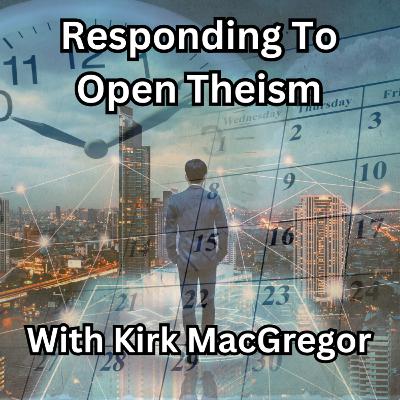

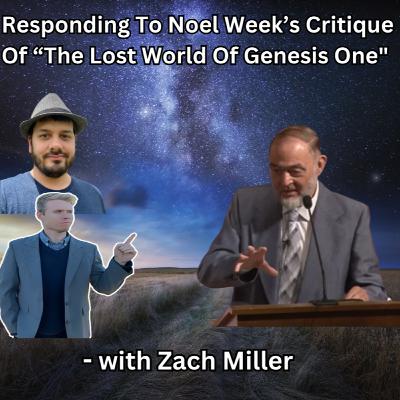
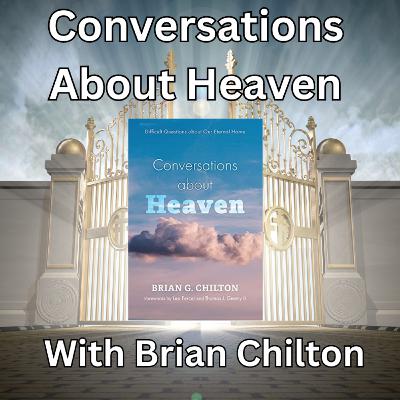





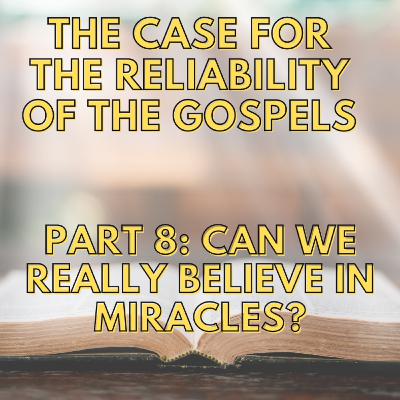
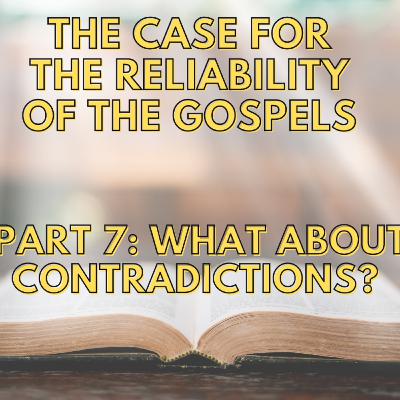
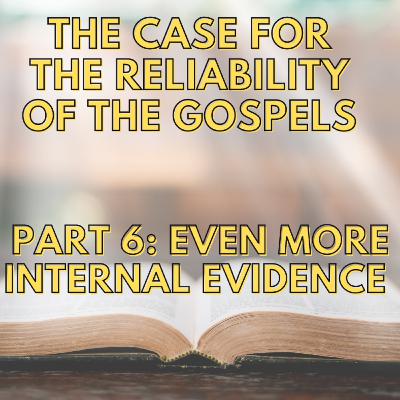
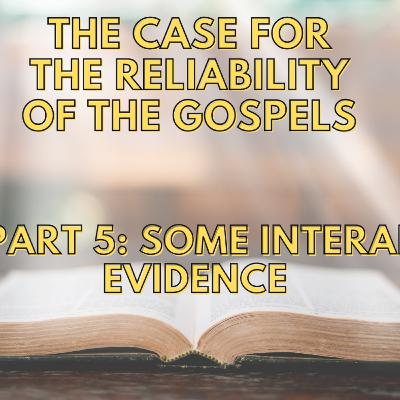
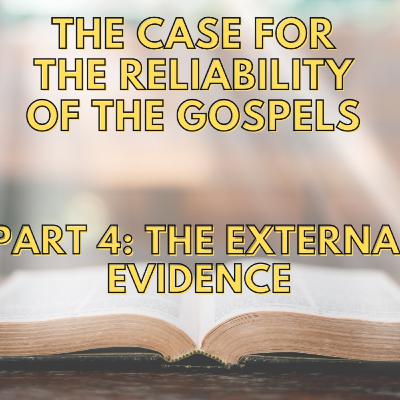

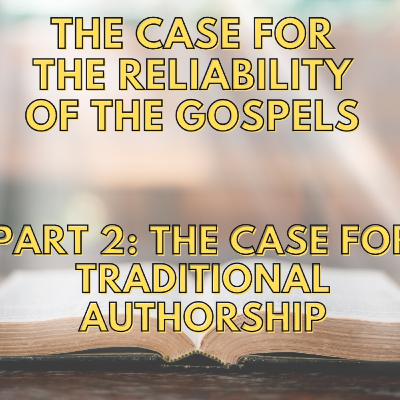



This was a great episode. I have struggled against the anti-intellectualism that is found in evangelical churches. I don't think the local pastors are going out of their way to do this, but where they draw their resources from to teach is an issue (and I'm not referring to the Bible). I'm convinced there is a concerted effort in the highest levels of Big Eva to dumb down the congregations to avoid producing smart Christians in order to make them easier to manipulate. Unfortunately, I don't see a way to change this culture as you are held to ridicule at every turn and your salvation is questioned any time you bring up topics like the cosmological argument and the ANE application. BTW, the secular world have also jumped off the cliff into that same anti-intellectualism. In the last few years, they have not only been encouraged to give up on reason, they have been bullied into doing so. Anti-intellectualism isn't strictly constrained as a symptom of the religious. But, it is curious that
Thank you for this. There is just a wealth of info here. This will take me some time to digest and pour through what was presented. But it is helping me work through some of my skepticisms of Genesis that AiG could not help me and had actually made it worse.
44:36 I don't think Stephen Hawking made a mistake, but I'm about to suggest is to assume that I know what he was thinking which is impossible. But I would speculate that what he did was side step a bit of logic that would have otherwise put him in a position to face something that would fly against everything he defended in a lifetime.